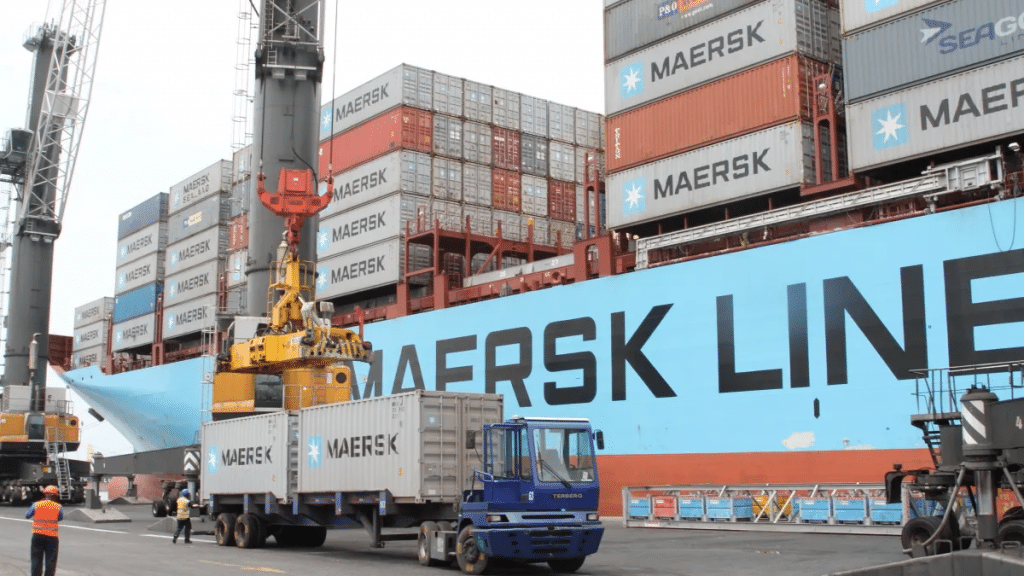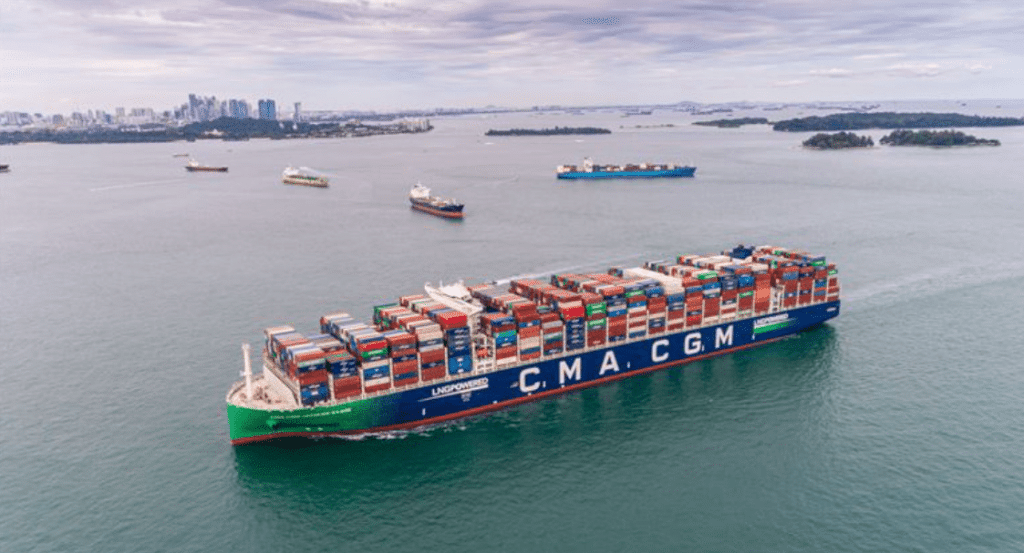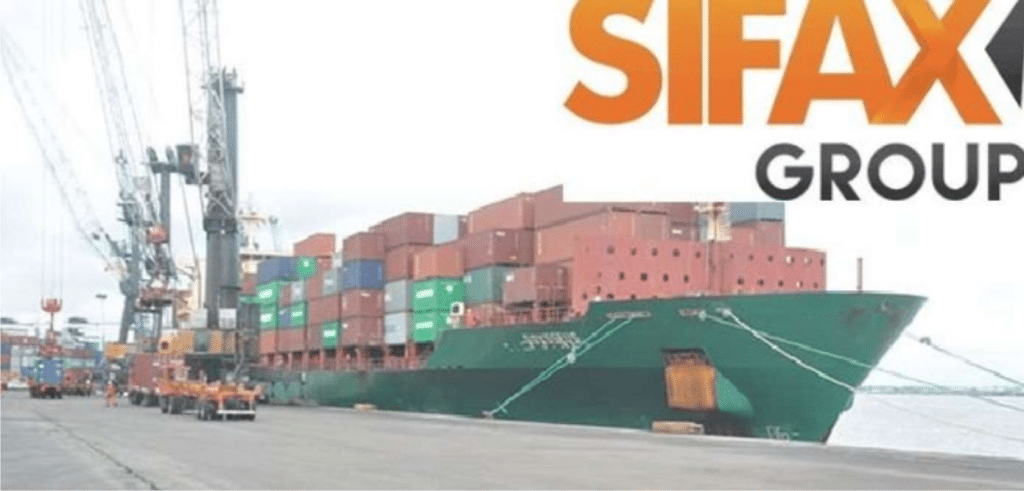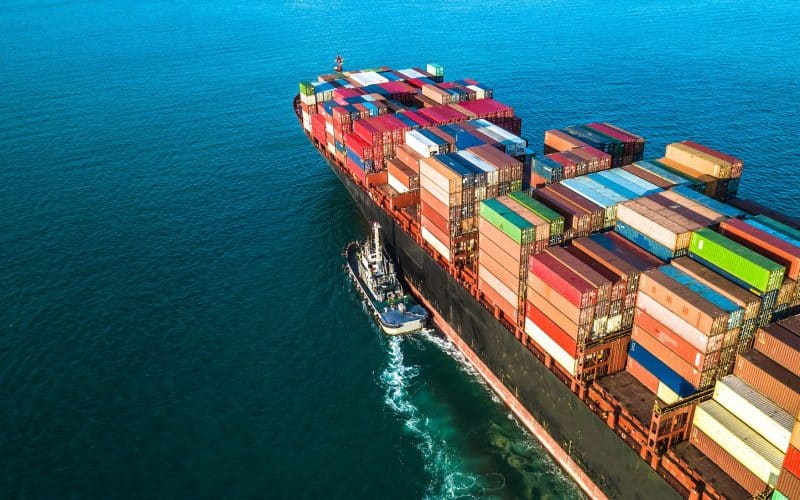Shipping is the lifeblood of Nigeria’s economy, connecting it to global trade networks and assuring the movement of products in and out of the country. As someone who has spent years navigating the intricate world of logistics, I have come to recognize the vital role that shipping companies play in keeping organizations functioning efficiently. When it comes to efficiently delivering goods, Nigeria’s biggest shipping companies stand out for their extensive networks, dependable services, and significant economic impact. In this post, we will look at the major shipping companies in Nigeria.
Why Shipping Companies Matter In Nigeria
Nigeria, with its large population and rising economy, depends significantly on shipping companies to enable trade and commerce. These companies are in charge of moving commodities throughout the country’s long coastline, including everything from consumer goods to industrial equipment. These shipping companies’ efficiency and reliability can have a direct impact on business success, affecting everything from inventory management to customer happiness. Understanding the important actors in Nigeria’s shipping industry is critical for professionals in logistics, import/export enterprises, and even e-commerce to make sound judgments.
The Largest Shipping Companies in Nigeria
#1. Maersk Nigeria Limited

Maersk Nigeria Limited, a subsidiary of the worldwide shipping giant Maersk Line, is one of Nigeria’s biggest shipping companies. The company, known for its wide global network and superior logistics solutions, has played a key role in connecting Nigeria to international trade routes. The corporation handles much of Nigeria’s container traffic, making it an important player in its import and export operations.
- Unique Strengths: Global reach, advanced logistics technology, and large container handling capability.
- Impact: Maersk’s operations in Nigeria have helped to reduce shipping times and costs, benefiting firms across a variety of industries.
#2. Grimaldi Agency, Nigeria

Grimaldi Agency Nigeria, a division of the Grimaldi Group, is another prominent player in the Nigerian shipping business. The company specializes in roll-on/roll-off (RoRo) services and is a popular alternative for carrying vehicles, machinery, and other heavy equipment. The company’s strong presence in Nigeria has made it a popular choice for enterprises involved in automobile imports and heavy equipment logistics.
- Unique Strengths: RoRo experience, extensive links to European and American markets, and specialist management of huge freight.
- Impact: Grimaldi’s efficient RoRo services have made it easier for firms to import automobiles and heavy machinery, minimizing the logistical issues that come with such shipments.
#3. PIL (Pacific International Lines), Nigeria

PIL Nigeria is a subsidiary of Singapore-based Pacific International Lines, one of Asia’s leading shipping companies. The company has established itself as a trusted shipping partner in Nigeria, providing a variety of services such as container shipping, cargo handling, and logistics solutions. PIL has established itself as a reputable name in the Nigerian shipping business by emphasizing customer service and operational efficiency.
- Unique Strengths: Strong emphasis on customer care, adaptable shipping options, and large geographical coverage.
- Impact: PIL’s focus on customer satisfaction and flexible service offerings has assisted several Nigerian firms in optimizing their shipping processes.
#4. CMA CGM Nigeria

CMA CGM Nigeria is part of the global CMA CGM Group, which is one of the world’s major container shipping companies. In Nigeria, CMA CGM provides full shipping and logistics services such as container shipping, warehousing, and distribution. The company’s wide network and advanced tracking technology make it a dependable partner for organizations trying to improve supply chain efficiency.
- Unique Strengths: Advanced tracking and logistics technology, a vast worldwide network, and integrated shipping solutions.
- Impact: CMA CGM’s technology-driven strategy has increased transparency and efficiency in Nigeria’s shipping industry, providing firms with real-time tracking and better logistics management.
#5. Mediterranean Shipping Company (MSC), Nigeria

MSC Nigeria is the Nigerian affiliate of Mediterranean Shipping Company, a global shipping powerhouse. As one of the world’s leading shipping companies, MSC offers a broad range of services in Nigeria, including container shipping, logistics, and supply chain management. MSC’s excellent global connections and dependable service have helped it become a prominent player in Nigeria’s international trade.
- Unique Strengths: Global experience, extensive logistics solutions, and strong supply chain management capabilities.
- Impact: MSC’s operations in Nigeria have made international trade run more smoothly and reliably, allowing businesses to maintain consistent supply chains.
#6. The Sifax Group

Sifax Group is a Nigerian company with a significant involvement in the shipping and logistics industries. The corporation runs many terminals in Nigeria’s major ports, providing services such as cargo handling, warehousing, and logistics management. Sifax Group’s extensive knowledge of the local market and excellent government contacts have established it as a prominent player in Nigeria’s shipping industry.
- Unique Strengths: Local market knowledge, excellent government contacts, and diverse logistics services.
- Impact: Sifax Group’s local experience and complete service offerings have made it a preferred partner for businesses seeking dependable and efficient shipping solutions in Nigeria.
#7. GAC Shipping, Nigeria

GAC Shipping Nigeria is a subsidiary of the GAC Group, a global provider of integrated shipping, logistics, and maritime services. In Nigeria, GAC provides ship agency, freight forwarding, and offshore support. The organization is well-known for its professionalism and devotion to safety, making it a popular choice for oil and gas businesses.
- Unique Strengths: Strong emphasis on safety, complete marine services, and specialized offshore assistance.
- Impact: GAC’s expertise in marine and offshore services has been critical to Nigeria’s oil and gas industry, guaranteeing safe and efficient transportation of equipment and personnel.
What are the Main Services Provided by Shipping Companies in Nigeria?
Nigerian shipping companies provide a wide range of services, including container shipping, cargo handling, warehousing, logistics management, and specialty services such as vehicle and heavy machinery roll-on/roll-off (RoRo).
How to Choose the Best Shipping Company for Your Shipment
Choosing the finest shipping company is critical for guaranteeing the seamless and effective transit of products. Here are some recommendations to help you choose the best shipping company:
#1. Research and Compare
Conduct extensive research on several shipping companies, including their services, reputations, and track records.
Compare pricing, transit times, and service offers to choose the best shipping business for your needs.
#2. Check Reputation and Reliability
Look for reviews, testimonials, and references from former customers to determine the shipping company’s reputation and dependability.
Select a provider with a track record of timely delivery, minimum damage or loss of products, and prompt customer service.
#3. Consider specialization and experience.
Consider the shipping company’s experience and knowledge of your specific cargo or industry requirements.
Choose a company that specializes in carrying commodities like yours, whether they are perishable, hazardous, enormous, or high-value.
#4. Verify licensing and insurance
Make sure the shipping company is officially licensed, registered, and authorized to operate in the applicable jurisdictions.
Check that the company has enough insurance coverage to protect your cargo from loss, damage, or responsibility during transit.
#5. Evaluate Customer Service and Communication
Assess the shipping company’s customer service and communication.
Choose a provider that provides prompt customer service, clear contact channels, and regular information on the progress of your shipments.
#6. Review the Network and Coverage
Check the shipping company’s network and coverage to ensure that your items can be delivered to their intended destinations.
To effectively reach your target markets, select a provider with a large network of routes, ports, and distribution hubs.
#7. Assess technology and tracking capabilities
Evaluate the shipping company’s technology and tracking skills to keep track of your shipment in real-time.
Choose a company that provides innovative tracking systems, internet platforms, and digital tools for tracking shipments and retrieving shipping information.
#8. Consider the cost and value
Compare shipping rates and fees from several companies to determine the most competitive pricing.
Consider the shipping company’s overall value in addition to the initial cost, which includes the level of service quality, dependability, and other benefits.
#9. Inquire About Additional Services
Inquire about any other services provided by the shipping company, such as warehouse management, customs clearance, freight forwarding, and supply chain management.
Choose a provider that can provide complete logistics solutions to fulfill all of your shipping demands.
#10. Seek recommendations and references.
Seek referrals from coworkers, industry peers, or professional networks who have worked with shipping companies.
Request recommendations from the shipping firm and follow up with prior customers to get firsthand information about their experiences.
Are any Nigerian-owned shipping companies among the leading players?
Yes, Sifax Group is a well-known Nigerian shipping company with comprehensive logistics services and significant local market understanding.
What are the Main Services Provided by Shipping Companies in Nigeria?
Shipping companies in Nigeria play an important part in the country’s trade and logistics sectors, providing a wide range of services that meet both domestic and international needs. Here’s a closer look at some of the main services offered:
#1. Container Shipping
Container shipping is a major service supplied by Nigerian shipping companies. This involves transporting goods in huge containers that can be readily loaded, unloaded, and transported between modes of transportation (ship, rail, and truck). Container shipping is especially popular in international trade because it provides a safe and effective way to move a wide range of goods, from consumer products to industrial resources.
Container shipping ensures the safe and secure transportation of products over great distances, preventing damage and theft. It also enables more efficient handling and storage at ports and warehouses, decreasing logistical complexity.
#2. Cargo Handling
Cargo handling refers to all activities involving the transfer, storage, and management of products at ports and terminals. Shipping companies provide trained manpower and equipment to load and unload cargo from ships, ensuring that items are handled safely and efficiently. This service is critical for ensuring the movement of products through Nigeria’s busiest ports.
#3. Warehousing
Warehousing is another important service provided by shipping companies in Nigeria. These companies frequently offer storage facilities where things can be kept before or after transportation. Inventory management, packing, and order fulfillment are all part of warehousing services. This service is especially helpful for businesses that need to store products before distributing them to other places.
#4. Logistics Management
Logistics management is the coordination of many activities necessary to transport commodities from one location to another. This comprises planning, implementing, and managing the movement of goods, services, and information. Shipping companies in Nigeria provide full logistics management services, ranging from transportation and warehousing to customs clearance and distribution.
#5. Roll-on/roll-off (RoRo) Shipping
RoRo Shipping is a specialist service for carrying vehicles, machinery, and other heavy equipment that can be driven onto and off ships. This approach is often used for shipping automobiles, trucks, and construction equipment. Grimaldi, for example, specializes in RoRo services, which help enterprises import and export heavy cars and machinery.
#6. Customs Brokerage
Shipping companies offer customs brokerage services to help enterprises clear customs. This service includes creating and submitting the relevant papers, ensuring compliance with local rules, and paying the applicable duties and taxes. Shipping companies frequently employ in-house customs brokers who are up to date on current legislation and processes.
#7. Freight forwarding
Freight forwarding is a service that arranges for the shipment of products on behalf of shippers. Shipping companies that function as freight forwarders manage the full shipping process, from transportation to documentation and delivery. This service is vital for organizations that need to export goods overseas but lack the skills or resources to handle the logistics themselves.
What are the challenges that shipping companies face in Nigeria?
Shipping companies in Nigeria operate in a complex environment, with numerous problems that might affect their productivity and profitability. Here’s a more detailed look at some of the significant challenges:
#1. Port Congestion
Port congestion is a serious concern for Nigerian shipping companies, particularly at large ports such as Apapa and Tin Can Island in Lagos. When the port experiences a bottleneck, which frequently results from subpar infrastructure, capacity restrictions, and ineffective port operations, congestion occurs. This causes delays in cargo loading and unloading, higher shipping costs, and longer vessel turnaround times.
Port congestion can interrupt supply chains, resulting in delays and increased expenses for enterprises. It also puts pressure on shipping companies to devise alternate routes or techniques to prevent delays.
Some shipping companies have invested in technology to improve port operations and alleviate congestion. Others have formed partnerships with many ports to diversify their entry and exit locations, reducing the impact of congestion at a single location.
#2. Regulatory hurdles
Shipping companies in Nigeria must traverse a complicated web of rules, which include customs, environmental standards, and maritime safety. If companies fail to comply with local regulations, regulatory impediments can cause delays in goods clearance, increase operational costs, and result in legal issues.
Navigating these regulations needs substantial money and skill. Delays in customs clearance or noncompliance with regulations may result in penalties, fines, and even the seizure of goods.
To address regulatory issues, several shipping companies have invested in compliance teams and built strong connections with regulatory organizations. They also provide training for their employees to ensure that they are up to date on the newest legislation and practices.
#3. Infrastructure Limitations
Nigeria’s infrastructure, particularly its roads, railways, and ports, is frequently insufficient to handle the large volume of products being moved. Poor road conditions, restricted rail networks, and aged port infrastructure can hinder cargo movement, raise transportation costs, and impair overall shipping efficiency.
Infrastructure limits can cause delays, increased wear and tear on vehicles, and higher maintenance expenses for shipping companies. These concerns also raise logistics expenses for organizations, which may be passed on to customers.
Some shipping companies have invested in private infrastructure, such as dedicated warehouses and transport fleets, to lessen their dependency on public facilities. Others work with the government and the corporate sector to push and invest in infrastructure improvements.
#4. Security Concerns
Security is a serious concern for Nigerian shipping companies, especially given the potential of piracy in the Gulf of Guinea, cargo theft, and vandalism. These security risks might result in the loss of goods, higher insurance rates, and the necessity for additional security measures like armed escorts and safe warehousing.
Security issues can increase shipping companies’ operational costs and cause delays as they make extra efforts to protect their goods. The risk of theft or damage to products also affects shipping service reliability, which can influence customer trust.
To address security concerns, shipping companies have established stronger security methods, such as GPS tracking, protected transportation routes, and collaboration with security services. Some companies also collaborate with local authorities to ensure the safety of their activities.
#5. Environmental Concerns
Environmental issues such as pollution and climate change are increasingly affecting Nigerian shipping companies. Companies are being forced to change their operations to lessen their environmental impact due to rising sea levels, harsh weather occurrences, and environmental legislation.
Environmental issues can interrupt shipping routes, damage infrastructure, and result in tougher regulations, which raise operational expenses. Companies that fail to address environmental concerns may incur reputational consequences.
Many shipping companies are investing in greener technologies, such as fuel-efficient vessels and renewable energy sources, to lessen their environmental impact. They are also taking part in global projects to promote sustainable shipping standards.
Key Takeaways
- International shipping companies with extensive networks and cutting-edge logistics technologies, such as Maersk, CMA CGM, and MSC, dominate the Nigerian industry.
- Companies owned by Nigerians, such as Sifax Group, contribute substantial local market experience, making them vital for negotiating Nigeria’s regulatory and logistical obstacles.
- Grimaldi and GAC provide specialist services for specialty markets such as car imports and the oil and gas industry.
- Companies like CMA CGM have improved the transparency and efficiency of the shipping business by utilizing cutting-edge tracking and logistics technologies.
Conclusion
Both global giants and local heroes drive Nigeria’s shipping industry, which is a dynamic and important sector of the nation’s economy. Understanding the strengths and specialties of Nigeria’s biggest shipping companies can greatly affect your company’s effectiveness in managing logistics and supply chains. As you weigh your alternatives, whose shipping company would you trust to negotiate the complexity of Nigeria’s logistics environment?
- Top 10 Universities In Nigeria That Are Redefining Excellence In 2024
- Top 10 Richest Men In Nigeria In 2024 And Their Networth
- WHAT IS LOGISTICS? How Can Businesses Utilize It
- CARGO MANAGEMENT SYSTEM: Definition, Features, and 2024 Pricing






